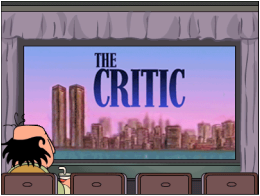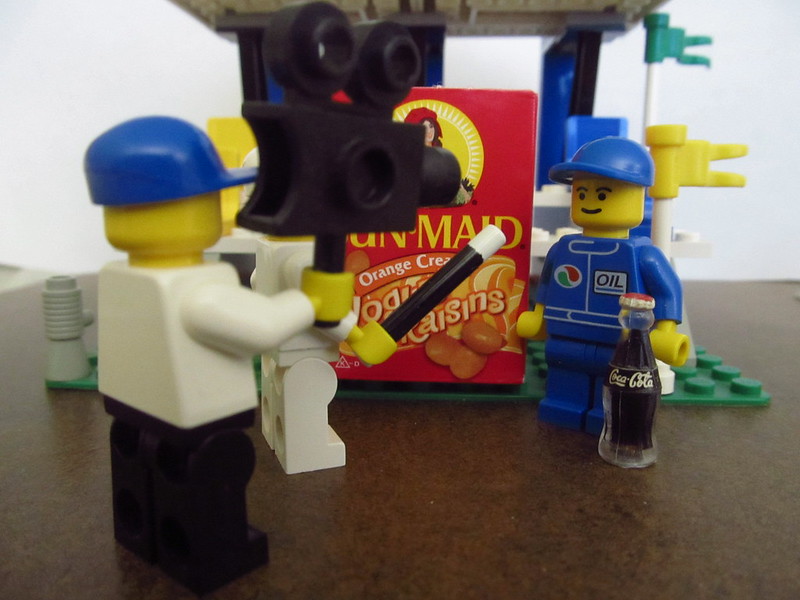|
A young man from Farmville, Virginia has bypassed the "necessary" Nashville record labels, publicists, and marketing gurus to become the hottest thing in music. Heck, he never even tried out for America's Got Talent!
Was it all a clever PR ploy devised by a radio station and a guy that lives in a trailer? Well, sort of. His sudden fame involved two secret ingredients to great PR: authenticity and honesty. You might think to yourself, "Isn't being authentic the same as being honest?" I wish that were true, but I can assure you, they are mutually exclusive. You can be authentic without being honest and vice versa. But when you are both, people know it. They sense it. They feel it. In an Artificial Intelligence culture where people hardly believe their own eyes anymore, authenticity and honesty are dying traits. As a result, our music has become less provoking and, ultimately, less relevant to us. Can you name the top hit on the pop charts from a month ago? Probably not. But even if country or bluegrass music isn't your thing, "Rich Men North of Richmond" will stay with you for a while. Because it is real. And boy, are we starving for that. —Gina Adams
0 Comments
I typically get calls from authors who are in the process of finishing their book or have already finished it, so I am unable to tell them what apparently no one before me has bothered to relay. So, here are seven things I wish every author knew before they call me:
Remember 2700. Two thousand seven hundred books are released daily. That’s every 24 hours. That is 985,500 books per year. The official release date of your book will be no different. You have a lot of competition from day one. Plan accordingly. Tinkerbell is not on my payroll. I am about to shock every person on the planet who wants to promote a book, a CD, a film, a whatever--publicity is not a magic wand. No, I don’t have a bag of pixie dust in my pocket and Tinkerbell doesn’t work in a cubicle beside me. I cannot, will not, must not guarantee you will sell one widget— let alone one million widgets— every time you do an interview or get a feature article. If I did guarantee that, I would be a full-blow idiot or a bold-faced liar. I am neither. A publicist can schedule the interview, prepare you for the interview, and do everything necessary to set up the interview in the most positive way possible. But once you are in front of the microphone, a publicist has zero control over your ability to convince people to buy your book or care about your ministry. PR people can get the horse to the water trough, but you have to make it drink. You might be an overnight success, but probably not. Have I seen “overnight successes” in my three decades of working in publicity? I have. Once. And even in that one instance I can tell you it wasn’t overnight. There were many years and countless hours of work and dedication to a craft that caused that “overnight” success. Overnight success is an anomaly, and truly doesn’t exist. You will find a Sasquatch’s pet unicorn before you find a real overnight success. There is nothing new under the sun. Well, okay, Solomon actually made that phrase famous, but I’ll borrow from his point. I have never read a book I haven’t read before. However, your book may contain some ideas or stories that are very unique to your competition. In fact, it is part of a publicist’s job to find those things that make your book and your ministry different. I like to say “you are only as good as your onlys” which means, you most likely have some “onlys” that apply to you. A publicist should help you identify them and highlight them tirelessly in your PR campaign. Every consumer has ADD. When I started my career in marketing over 30+ years ago, marketing stats told us we had to touch the consumer seven times before they were moved to buy a product. Today, it is 27 times and growing. There are now more smartphones than people on Planet Earth. We are a people bombarded and overloaded with data daily. So, you have to combine traditional publicity with other promotional avenues such as placing social media ads, creating contributed content, placing print and online ads, growing social media followers on the platforms that reach your targeted audience, creating fresh content on a regular basis, and so on. You may hate Facebook, but you may have to grit your teeth and add it to your PR campaign to be successful. Your book is just a big business card. I rarely ever took my child to McDonalds when he was little. But he knew what the golden arches were when we drove by them because McDonalds inserted themselves into every TV show he loved to watch. You need to look at yourself as the Golden Arches. You are the brand. Your book is a Big Mac. Later on, you may add French fries to your "menu" (ministry), or maybe a vanilla milkshake, and a crispy chicken sandwich. Your book is not your brand, and you shouldn’t treat it that way. This will be a marathon not a sprint. If you want to sell a book and be a successful author, you need to set your mind to being dedicated to that goal for the long haul. Long after your initial PR campaign is over, you need to be ready to set aside time, effort, and money to continue to promote your book through every avenue that makes sense for your specific niche. Are you good at talking? Maybe you need to create a podcast. Are you good at speaking in public? Maybe you need to venture into that arena. A publicist can start the ball rolling with selling your book and building your brand, but once the PR person hands you the baton, be ready to run with it. — Gina Adams After three decades of working in public relations, I have a few PR rules that generally apply to any client. Follow these and you'll never have to hire someone who specializes in Crisis PR:
 I have said it before and I will say it again: everything is public relations. Everything you say, even to an obscure, tiny media outlet, is going to be scrutinized. Everything you do, even if it is after an event, will be noticed and watched. Chick-Fil-A and the NFL have learned this the hard way. Chick-Fil-A's COO Tim Tassopoulos recently made this comment—what some might consider pretty bland and obscure—to a relatively unknown media outlet: “As we go into new markets, we need to be clear about who we are.” That comment is now a punchline about a company that most people thought they knew pretty well. Instead of making things "clear," they muddied their own smooth-sailing waters. Time will tell if their boats start sinking. Likewise, the NFL—a corporation, first and foremost—can't seem to get its employees in line. Apparently, the thing we all should have learned in Kindergarten--how to be a good sport—has been lost on this generation of adult men. Their employees are showing everyone what sore losers look like at the end of their most-watched, prime-time games. So how do you put the Genie back in the bottle when you face PR nightmares of this magnitude? It's called Crisis PR. Yes, it's a thing. There are firms that deal with this every day, and I'm sure they are getting the big bucks right now as they roll out a strategy to get back into the good graces of chicken sandwich lovers everywhere who just want to watch a great game. But here's a secret no crisis publicist will tell you. It is easier to leave the Genie in the bottle. It was actually Moses who first showed us the best crisis prevention plan ever developed by a CEO. The Ten Commandments aren't just necessary elements for the Judeo-Christian faith, they are really good PR ideas. Don't be deceitful. Don't wish for or take something someone else has. Don't try to kill anyone. Just those three commandments alone would have kept both Chick-Fil-A and the NFL out of trouble.  “If the circus is coming to town and you paint a sign saying 'Circus Coming to the Fairground Saturday,' that’s advertising/marketing. If you put the sign on the back of an elephant and walk it into town, that's promotion. If the elephant walks through the mayor’s flower bed, that’s publicity. And if you get the mayor to laugh about it, that’s public relations." -- Reader's Digest, “Promoting Issues and Ideas” by M. Booth and Associates, Inc. We live in a culture that craves attention. Social media has made a whole lot of people who know practically nothing, suddenly regard themselves as experts. And shows like "The X Factor" and "America's Got Talent" offer anyone with any sort of entertainment value the opportunity to become famous. But what good is fame if you have no end goal in mind? What good is a platform on which to speak if you have nothing to say? I decided long ago that I wasn't interested in just getting my clients media attention. Anyone with a list, a phone, and a little gumption can do that. What I wanted our little company to do was build solid, long-lasting careers, or more specifically for faith-based clients, ministries. In today's media-saturated world, press comes and goes instantaneously. We used to refer to a "window" when we released information during a news cycle. But today, news cycles are measured in minutes and hours instead of days or weeks which means that window is now a teeny-tiny hole in the door. So the need for understanding the difference between public relations and publicity is crucial to anyone who has long-term goals. Gaining media attention is great, but extremely short-lived. Building a name, a brand, a mission, a goal, or a relationship with an audience takes much more than a magazine article or a viral Tweet. It takes time, effort, patience, and above all, a laser-like focus on a predetermined and purposeful goal. God says in Isaiah 46:10 that He had the end in mind in the beginning. Billions of followers and the best-selling book of all time were the results. Not a bad public relations strategy if you think about it. -- Gina Adams  "You are unique, and if that is not fulfilled then something has been lost." — Martha Graham One of the first things I ask a potential client is "What are your onlys?" After they stammer for a second, I explain: "What makes you unique to everyone else? What do you offer that no one else offers? Answer that question, and our PR campaign begins." Some people know the answer immediately. Others do not. Part of a publicist's job is to find those "ONLYs." In the theme park world, their ticket sales are based on having the fastest, the tallest, or the longest ride. Notice the -est. Your "only" might be an 'est. I recently did a short campaign for an insurance group and asked them that question. They immediately answered it, yet they had never TOLD anyone about it. Most companies, artists, authors, and ministries have some "onlys" they can talk about. And if by chance they don't have any, they can always create some. Christians who have gifts to share sometimes feel at odds with what they deem as bragging or "tooting their own horn." But if you have an effective ministry, if your product or service fills a need, if you have something to contribute to the betterment of society, is it really the Christian thing to do to keep it a secret? 14 "You are the light of the world. A city on a hill cannot be hidden. 15 Neither do people light a lamp and put it under a bowl. Instead they put it on its stand, and it gives light to everyone in the house. 16 In the same way, let your light shine before men, that they may see your good deeds and praise your Father in heaven.-- Matthew 5 Whether you are a singer, author or corporation, if you live by Christian principles, you should be more than willing to tell others about the gifts bestowed on you from God. Discover your ONLYs and embrace them as part of your identity. God gave them to you for one simple reason -- to share them. Now, go hire a publicist -- and tell everybody.  "To avoid criticism, say nothing, do nothing, be nothing." -- Aristotle When I first started my career in public relations, there was a critic at a popular music magazine whose name was Bob. Bob was admired -- and feared -- for his sarcastic wit and brutal honesty. So I always thought twice before I sent a review copy of an album to Bob. The last project I sent him, he ripped it apart with the use of only four words. And I had to admit, his four-word review made me laugh out loud. Though Bob was never ugly in his comments, he was always honest. And, unlike many critics, he knew what he was talking about. Bob retired many years ago, but many "Bobs" have emerged to try to take his place. In fact, everyone who has a social media account of some kind fancies themselves a critic in today's world. If social media has taught us anything it is that critics are among us -- in spades. And unlike Bob, they can be hateful and downright mean. That's not being a critic, that's just being a jerk. When you release the new book or music project you have slaved over and made your baby, prepare yourself for the "Bobs." They troll the internet looking for people and projects they can slam and rail against. They live for it. It makes them happy to be cruel. It is the the most vile part of the social media phenomenon. These same people probably would be too afraid to ask for ice in a restaurant, but they feel empowered to "anonymously" tear into someone else or belittle their work. But don't be deterred. Share your music, your book, your film with the world. Though the "Bobs" can be loud, the people who will appreciate your work are still out there. We were recently filming a music video on a busy street when we began apologizing profusely to two ladies who had to dodge our cameras. One lady turned and said sternly, "Don't ever apologize for art." Right. Not even when the "Bobs" of the world call it trash. Keep creating. -- Gina Adams I'm giving away a family secret now. My husband is a Bigfoot fan. Yes, that's right. He believes in Sasquatch. Ask him and he'll prattle on about a moment in the woods in rural Kentucky as a child. Big noises, Trees falling. Very dramatic. So you can imagine his delight when the Animal Planet put the series "Finding Bigfoot" on the air. My husband got his popcorn ready every Sunday night to finally see this elusive, Ninja-like creature that has alluded men for decades. But a funny thing happened. Each week he watched and each week they didn't find it. Again. And again. And again. Last night was the last straw for my husband as they announced the series' season finale. "If they don't find something next week," my husband exclaimed, "I'm writing Animal Planet and telling them to take the show off the air. This show is making me NOT believe."
I don't want to second guess Animal Planet or the BFRO folks (Bigfoot Field Research Organization), but I'm assuming this is not the reaction they were going for from viewers. I get the sense that they wanted the opposite effect. Surely they hoped that people on the fence or over the fence on the Sasquatch theory (i.e. hubby) would get involved with the BFRO, buy their stuff, Like their Facebook page, get the t-shirt, hat, yada, yada. But it seems, instead, they are making believers into non-believers. Bummer. So what does any of this have to do with PR? Well, this is a good example of a bad PR move. Someone at the network didn't think this through. I mean, at some point, just make something up for Pity's Sake so these poor Sasquatch folk can keep thinking that giant ape-like men are alive and well. What we have here is a case of not having the end goal in mind. Every public relations campaign should start at the end. Everything in the middle should lead to the same end. Otherwise, your good intentions will lead your PR efforts down the wrong path-- to that place of eternal sweat where all good intentions lead. And apparently, there is no Bigfoot there either. "If I was given eight hours to chop down a tree. I would spend seven hours sharpening my ax." - Abraham Lincoln
There are parts of a PR campaign that should remain silent. Those “quiet” moments of no TV cameras pointed at the client, no radio interviews on the calendar, and no articles in magazines can seem pointless to anxious clients who want to see fast results. But as Honest Abe reminds us, preparation is often the most important part of the process. Those “silent” days and weeks at the beginning of a publicity campaign are when a PR consultant should be getting a client ready to face the media. It may involve everything from getting social media in place to having multi-media components produced to updating a website to working through interview preparations. Many clients want to hit the ground running – and they can – because they walk into a publicity campaign with all elements already in place. But most do not. And the preparation phase (or lack thereof) will make or break the entire campaign itself. You only get one chance to make that first impression. Make sure the ax is sharp. There's a word floating around the publishing and recording industries of late—platform. What industry execs want to know before they sign a new artist or author is do they have a platform? Do they have a built-in audience? What most would-be artists and authors miss is the subtle but obvious question really being asked by the big companies -- can you sell your own CD or book without us? Think about the ludicrousness of that for a moment. Because if the answer is yes, then why do you need them? Books and music will never be the same again thanks to iTunes and Kindles. Technology has over-taken both industries to the point that once-needed go-betweens (i.e. publishers, record labels) are scrambling to figure out their place in this new world of downloads and instantly-accessible libraries. William Young thought he needed a publisher and sent his manuscript, THE SHACK, to several of them. They all turned him away. Undaunted, he self-published his book anyway. At nearly four million copies sold, I'm fairly certain Mr. Young is glad he doesn't have a publisher. Which brings us back to platform. Can you create your own? You betcha. What are your strengths? If you're a singer, can you also speak? If you're a writer, have you started a blog regarding your book's subject? Think outside the scope of the talents you have and explore ways you can create opportunities to touch people with your message. In our social network universe, the consumer is more accessible than ever and a platform is even more attainable. With a little ingenuity, some guidance from a quality public relations professional and some blood, sweat and tears, you can have a best-seller on Amazon and discover the benefits of owning 100% of your work and reaping 100% of the profit. |
|




 RSS Feed
RSS Feed